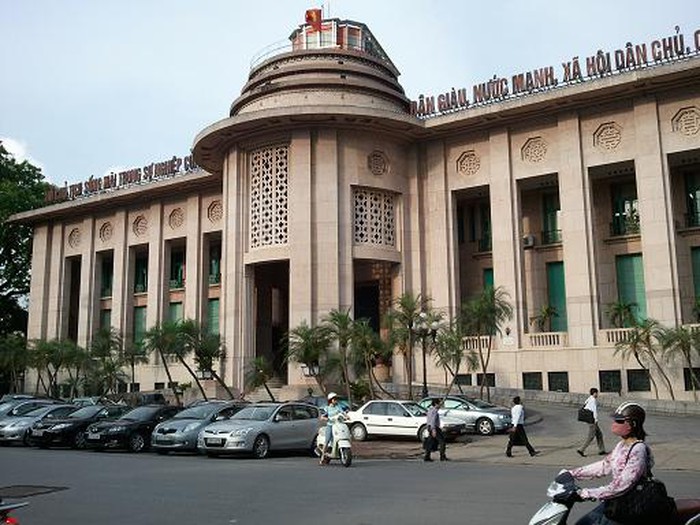
A number of banks have invested heavily in corporate bonds, accounting for increasingly large proportions of their total assets, according to the SBV.
According to the SBV, after reviewing the business performance of banks in the first half of this year, it saw the corporate bond investment of some banks facing risks as the ratio of such investment was high and is continuing to rise.
Notably, the amount of bond investment in construction and real estate firms at some banks accounted for a large proportion of the banks’ total assets while the real estate market has not yet recovered firmly and the business performance of realty firms still faces many difficulties.
In addition, some banks also invested in bonds with other purposes, such as to restructure debts of issuers, which have high risks.
In order to ensure the safety of the banking system and limit risks in corporate bond investment, under the direction, SBV required banks to review their internal regulations related to the appraisal and approval procedures of corporate bond investment so as to ensure they are in accordance with the Government’s current laws.
The SBV also directed commercial banks not to buy corporate bonds, which have the purpose to restructure the debts of issuing companies, and they must also take post-lending supervision measures to reduce their bad debts, in accordance with the country’s legal regulations.
According to the State Securities Commission, total corporate bond issuance in the first six months of 2019 reached 60 trillion VND (2.58 billion USD).
In June and July, there were 44 bond issuers, including 17 realty companies, eight banks and two securities companies. The remaining 17 companies that issued bonds were from different sectors.
Deputy Prime Minister Vuong Dinh Hue has also recently asked for stricter supervision on corporate bond issuance so that the finance and equity sectors operate properly and safely.
Accordingly, Hue requested the Ministry of Finance, the State Securities Commission and the SBV to supervise the corporate bond market carefully and create a development plan for the corporate bond market, which must consist of lending limits, conditions and ratings.
The move came after a number of enterprises, especially property developers, have offered corporate bonds with high volumes and attractive yield rates of up to 14-15% per annum, which puts pressure on the financial and banking system.
Officials noted that although the corporate bond market needs to be developed in order to reduce the dependence of the economy on commercial banks, corporate bond issuance must be transparent and secure.
Additionally, high yield rates for real estate firms’ corporate bonds must be closely watched, as they may have an impact on the Government’s macroeconomic policies.
Data from the Ministry of Finance shows that total corporate bond sales exceeded VND116 trillion (US$4.9 billion) in the first half of 2019, up 7.4% from one year ago, while some VND36.7 trillion was issued by commercial banks, accounting for 36% of the total.
As of late June, the capitalization of the corporate bond market was equal to 10.2% of the country’s gross domestic product, surpassing the set target of 7% in 2020.


















